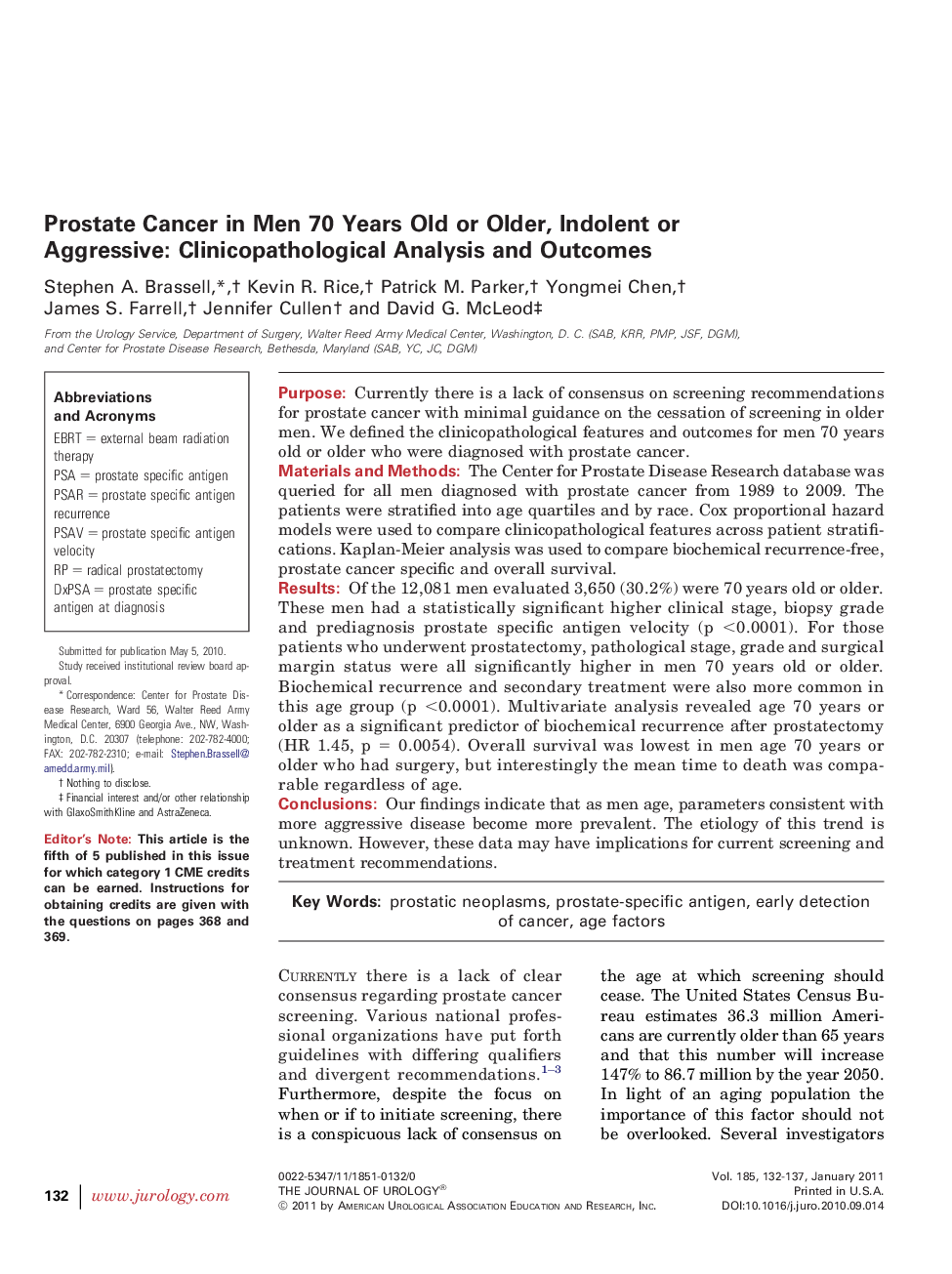| Article ID | Journal | Published Year | Pages | File Type |
|---|---|---|---|---|
| 3872199 | The Journal of Urology | 2011 | 6 Pages |
PurposeCurrently there is a lack of consensus on screening recommendations for prostate cancer with minimal guidance on the cessation of screening in older men. We defined the clinicopathological features and outcomes for men 70 years old or older who were diagnosed with prostate cancer.Materials and MethodsThe Center for Prostate Disease Research database was queried for all men diagnosed with prostate cancer from 1989 to 2009. The patients were stratified into age quartiles and by race. Cox proportional hazard models were used to compare clinicopathological features across patient stratifications. Kaplan-Meier analysis was used to compare biochemical recurrence-free, prostate cancer specific and overall survival.ResultsOf the 12,081 men evaluated 3,650 (30.2%) were 70 years old or older. These men had a statistically significant higher clinical stage, biopsy grade and prediagnosis prostate specific antigen velocity (p <0.0001). For those patients who underwent prostatectomy, pathological stage, grade and surgical margin status were all significantly higher in men 70 years old or older. Biochemical recurrence and secondary treatment were also more common in this age group (p <0.0001). Multivariate analysis revealed age 70 years or older as a significant predictor of biochemical recurrence after prostatectomy (HR 1.45, p = 0.0054). Overall survival was lowest in men age 70 years or older who had surgery, but interestingly the mean time to death was comparable regardless of age.ConclusionsOur findings indicate that as men age, parameters consistent with more aggressive disease become more prevalent. The etiology of this trend is unknown. However, these data may have implications for current screening and treatment recommendations.
